Whether we realize it or not, balance is involved in almost everything we do. From simple tasks, like going on an afternoon stroll or stepping in the shower, to more obvious instances, like carrying the laundry down the stairs or walking over a patch of ice, we're hardwired to be balanced. The alternative of falling down (ouch) can be a painful and traumatic experience.
Luckily, the best shoes for balance can help reduce your chances of taking a tumble. We spoke with two movement specialists and got their tips for improving balance, as well as their advice on how to choose shoes for balance problems.
- Griffin Coombs, CPT, CES, fitness and breathing coach based in Morocco
- Stephanie Thomas, ACE-certified personal trainer and founder of Stephanie Thomas Fitness
The best shoes for balance
- Best for wide feet: New Balance, 847v4, $112
- Best for strength training: Nike, Metcon 9, $150
- Best walking shoes: Hoka, Bondi 8, $165
- Best for running: Brooks, Adrenaline GTS 22, $110
- Best zero-drop shoes: Altra Running, Paradigm 7, $170
- Best casual shoes for balance: Cariuma, IBI Low, $119
- Best shoes for mature feet: Propét, Stability Walker Strap Shoe, $105
- Best orthopedic shoes for balance: Orthofeet, Coral Stretch Knit, $140
- Best Skechers shoes for balance: Skechers, Go Walk Arch Fit Unify Sneaker, $85
{{post.sponsorText}}
Do shoes affect balance?
When it comes to improving our balance, wearing the proper footwear is a good place to start. In addition to mobility stretches and foot and ankle exercises, the right pair of sneakers can decrease our chances of falling down. These shoes add more support and stability by preventing slipping and sliding, says Stephanie Thomas, CPT, a certified personal trainer based in Maryland.
Here are some important qualities the pros say to look out for:
Check the sole
To find your "sole"mate, consider just that—a firmer sole, which will provide an additional layer of support. To determine if your sole is tough enough, grab the front and back of the shoe and attempt to bend it. A firm shoe shouldn't have a twistable middle, says Thomas.
Go for a secure fit
Another feature to look out for are laces or velcro straps, "so you have the option to tighten the shoe as needed," Thomas says. "Avoid slip-on shoes as they may not feel very secure," she adds.
Let your toes spread
"Make sure the shoe is wider at the top than it is at the heel," recommends Griffin Coombs, CPT, CES, a fitness and breathing coach who resides in Tangier, Morocco. This ensures that your toes can spread to widen your base of stability.
Find your balance with the sneakers below, all expert-approved to bring a little more stability to your life.
9 of the best shoes for balance
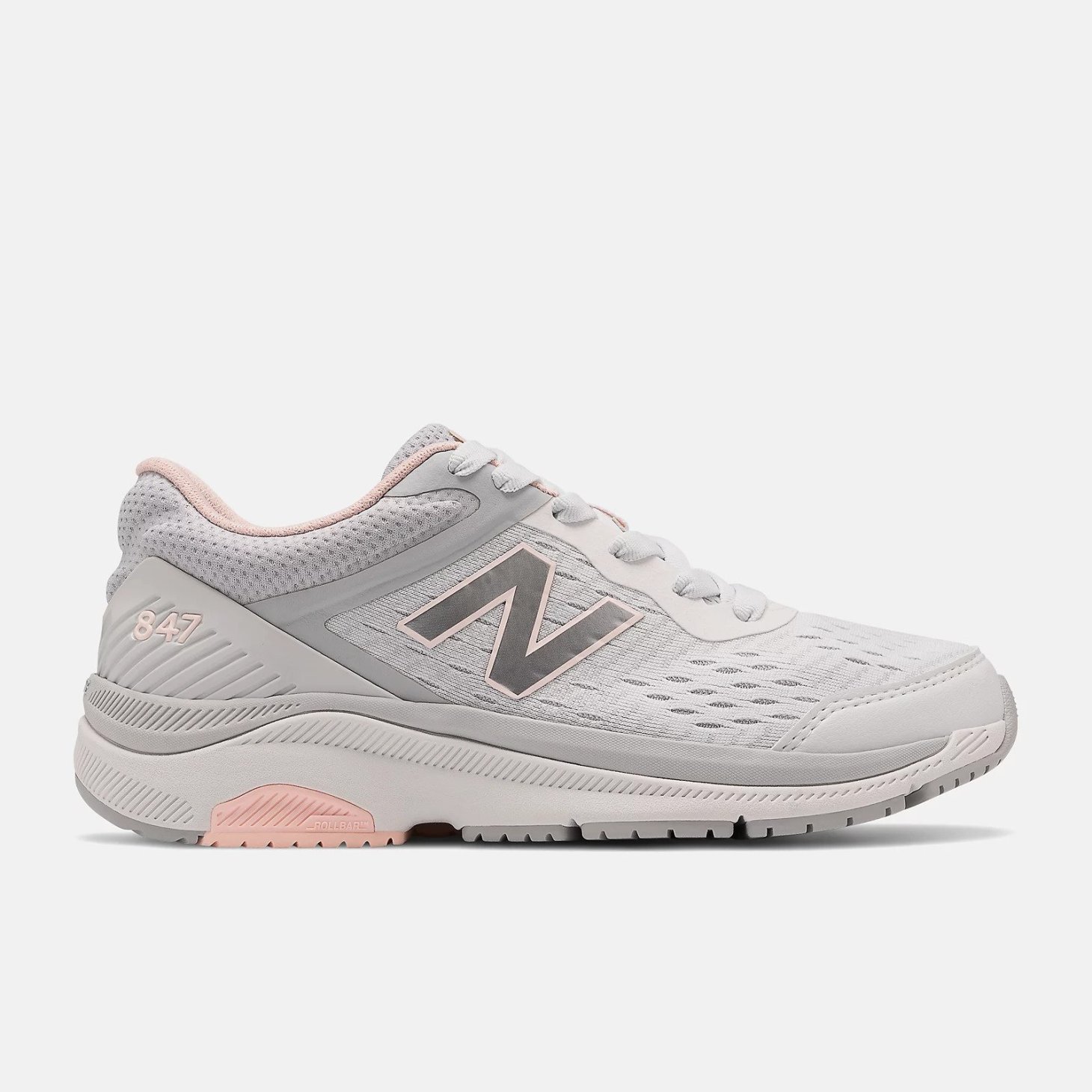
Sizes: 5-13 (half sizes available)
Width options: Standard, Narrow, Wide, X-Wide, XX-Wide
Beyond the comfort that the New Balance 847v4 provides, this shoe serves up serious stability. Recommended by Thomas, the 847v4 kicks boast a responsive sole and firm midsole to support your every stride while giving you more control of your rear-foot movement. Even more, the shoe is built for all types of terrain thanks to its rugged outsole (no more slipping and sliding.) Plus, it comes in five (!) different widths, allowing you to really find your perfect fit.
Colors: 3
Pros:
- 5 width options
- Good traction for reduced slipping
Cons:
- May run small
- Limited color options
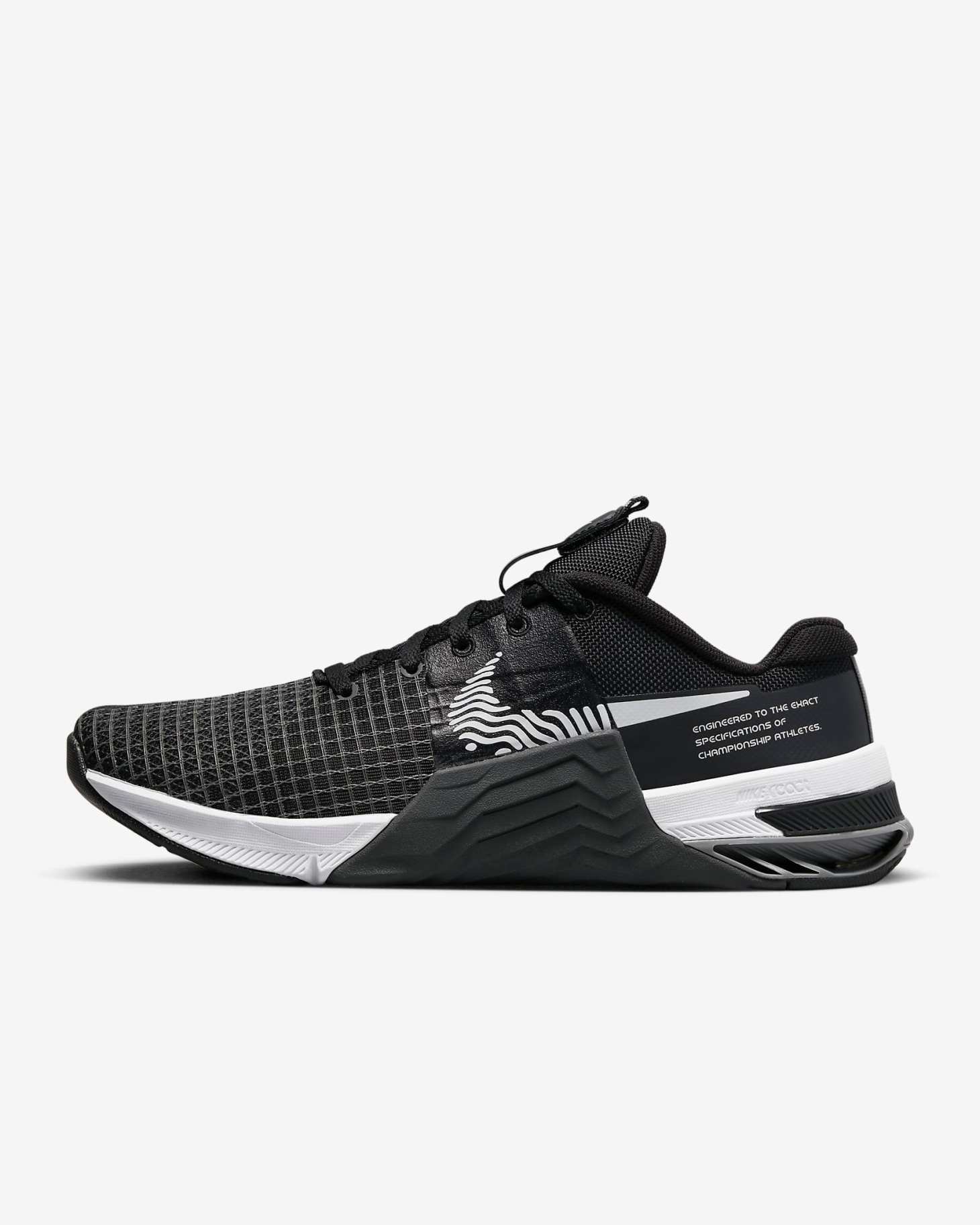
Sizes: 5-12 (half sizes available)
Width options: One standard width
If you’re training at the gym or hitting the squat rack, Nike’s Metcon 8 will help you power through lifts or workouts without the wobbles. The relatively-flat outsole keeps you grounded to the floor while the rugged outsole grips the ground, no matter if its rubber, wood, or turf flooring. And even though it’s sturdy, it’s incredibly breathable, so you won’t have to worry about feeling weighed down or disconnected.
Colors: 5
Pros:
- Designed for stability and grounding
- Made with recycled materials
Cons:
- Not very cushioned
- May be too narrow for some
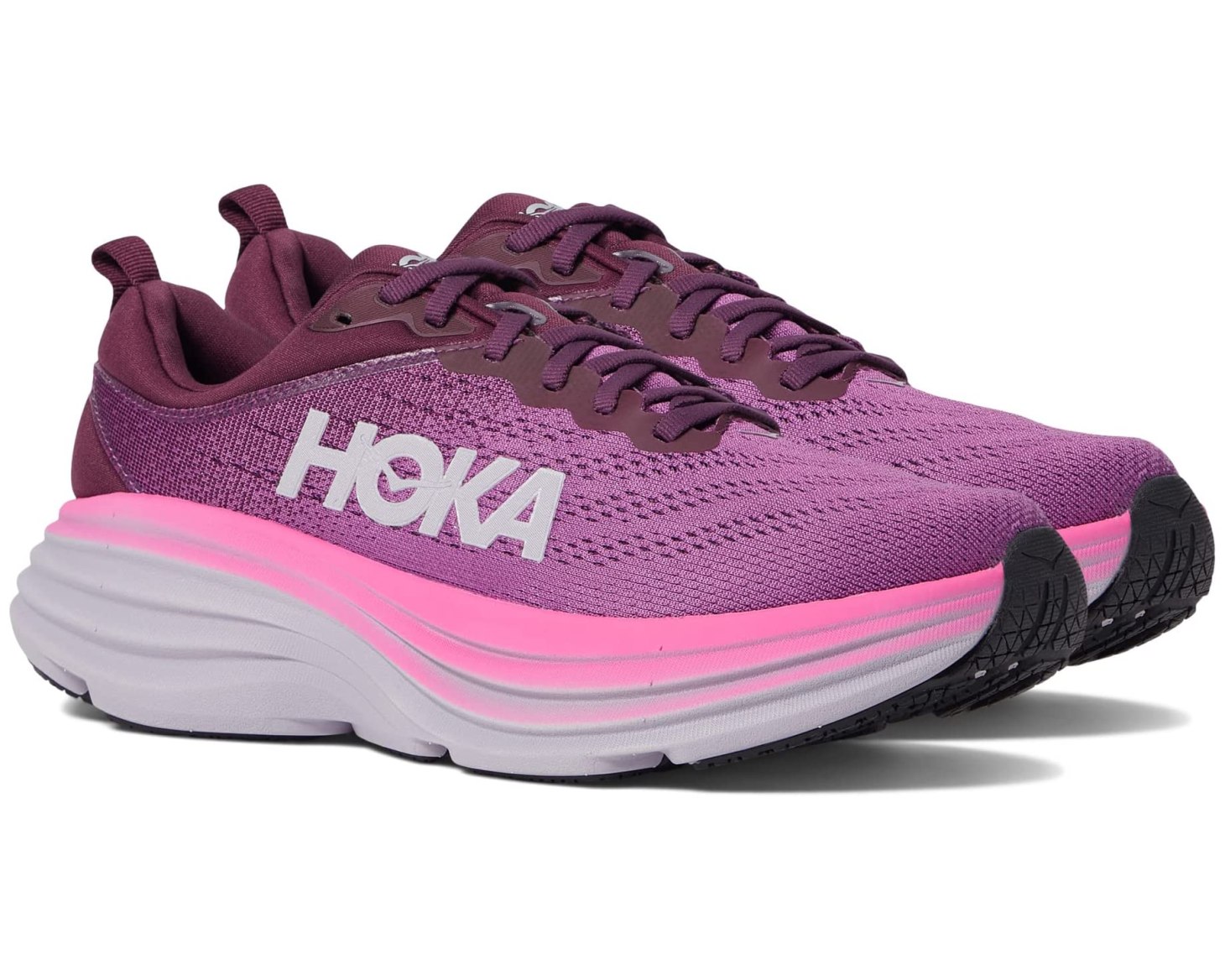
Sizes: 5-11 (half sizes available)
Width options: Regular, Wide
We’re big fans of Hoka, particularly these Bondi 8 sneaks. Even though these look like they’d throw off your balance with that elevated heel, Hokas will take your balance to new levels. Whether you’re standing or walking, the lace-up design keeps your feet strapped in for the ride, while the cushioned insole protects your footbed even when things get rocky. Bonus: It comes in a wide variety of fun and bold colors like Puffin Bill, Goblin Blue, and Sharkskin.
Colors: 20
Pros:
- Tons of color options
- Cushioned and supportive
Cons:
- May be too clunky for some
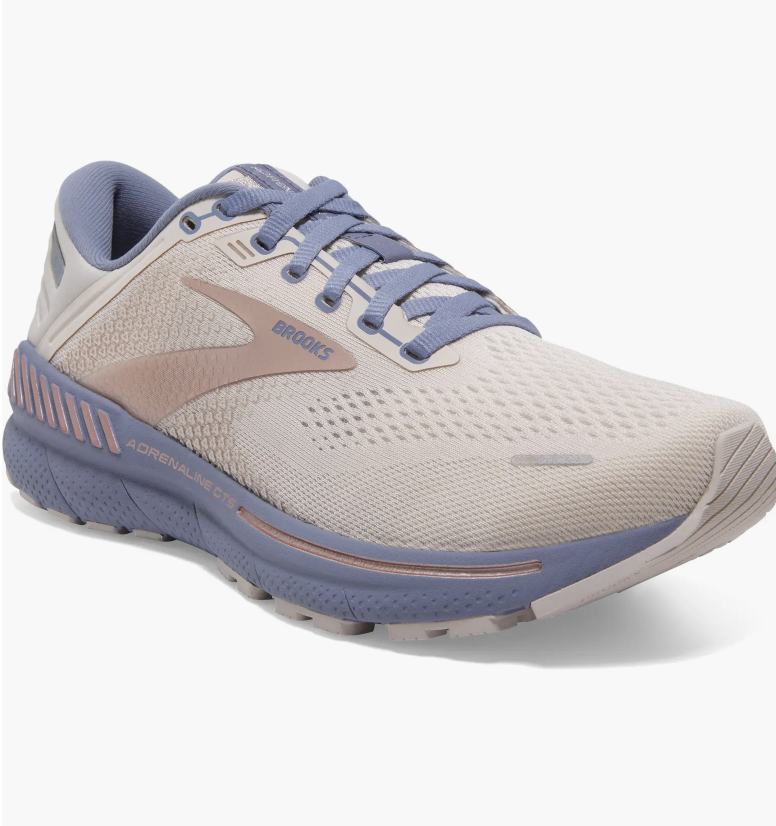
Sizes: 5-13 (half sizes available)
Width options: Regular, Narrow, Wide, X-Wide
Brooks has been a fan-favorite among runners for years, and this style in particular is a great pick for folks seeking a little more stability in their run. With Brooks’ proprietary GuideRails technology, which works to reduce excess movement while you run, and a generous amount of cushion, they’re a solid balance of stability and squish. Worth noting: we also included this pick in our list of the best shoes for hip pain.
Colors: 20+
Pros:
- Good balance of stability and cushion
- Favorite among overpronating runners
- Lots of color options
Cons:
- May run a half-size small
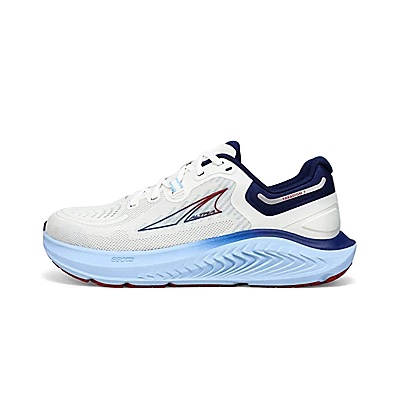
Sizes: 5.5-12 (half sizes available)
Width options: Altra’s Standard Footshape Fit
The best shoes for balance have a roomy toe box, a high-traction outsole, and are lightweight, and Altra’s Paradigm series ticks all of the boxes. The cushioned midsole encourages better walking form while the breathable mesh offers a hug-your-feet fit for ultimate comfort. Plus, like the rest of Altra’s line, Paradigm 7 shoes are zero-drop sneakers, which means there’s no angle between your heel and your forefoot. This provides a “barefoot” feeling, which may help you feel more grounded.
Colors: 4
Pros:
- Supportive design with generous cushion
- Roomy toe box
- Zero-drop structure keeps you grounded
Cons:
- Zero-drop shoes can be an adjustment
- Less color options
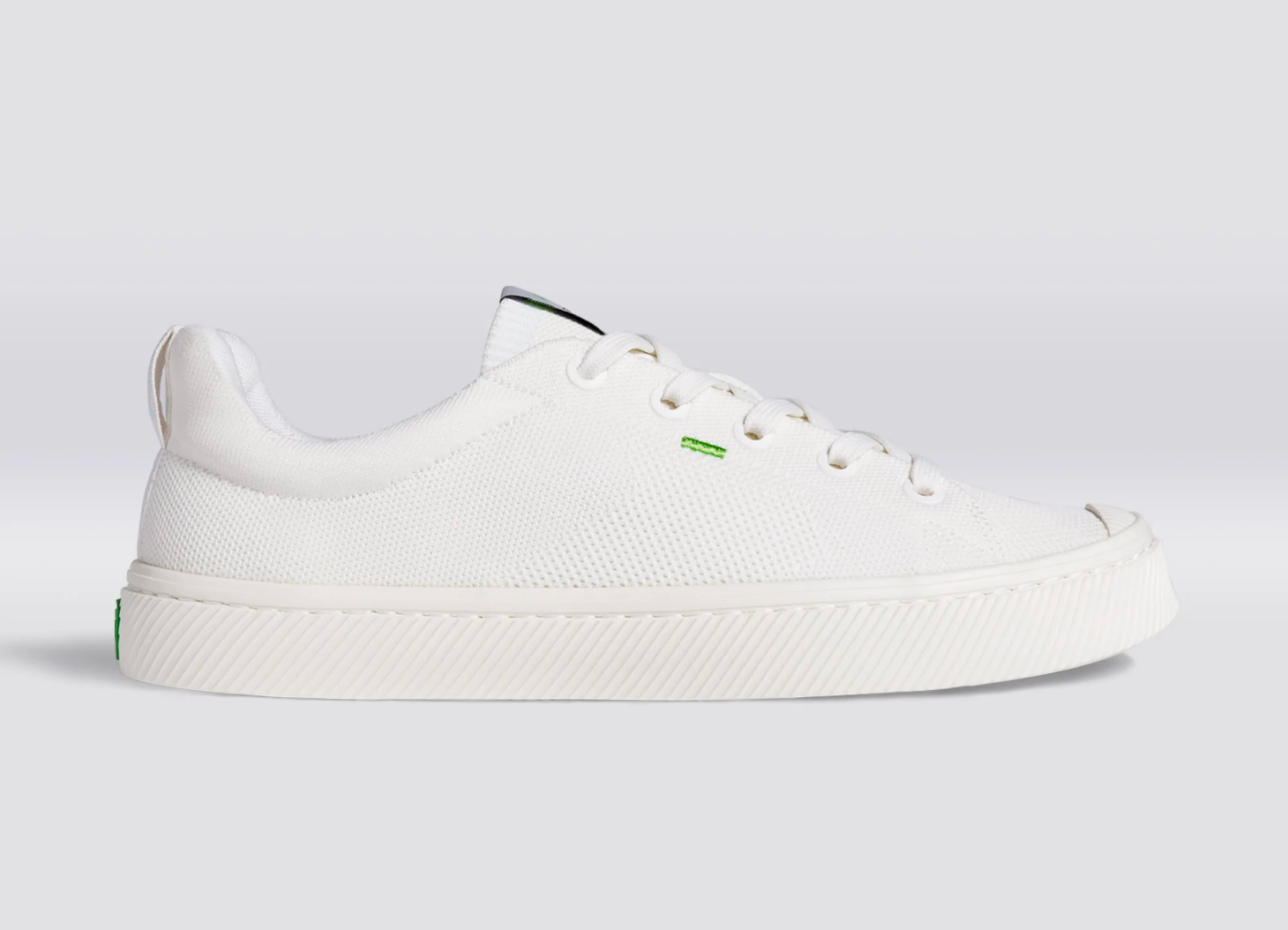
Sizes: 5-13 (half sizes available)
Width options: One standard width
Cariuma’s line of sustainably sourced sneaks has plenty of supportive options, but its IBI Low shoes stand out from the pack. The Lows use the brand’s signature cork insole (which has generous arch support and heel cushion) but add a breathable bamboo knit upper that gives your toes a little more wiggle room. Throw in a grippy sugarcane outsole for traction, and you’ve got one casual sneaker that won’t let you fall. The only downside? They’re only available in one standard width, so while they’re stretchy in the toe area, they’re not a great fit for folks with very wide feet.
Colors: 15
Pros:
- Good arch support
- Breathable knit design
- Sustainably-sourced materials
Cons:
- No wide options
- Runs a half size large
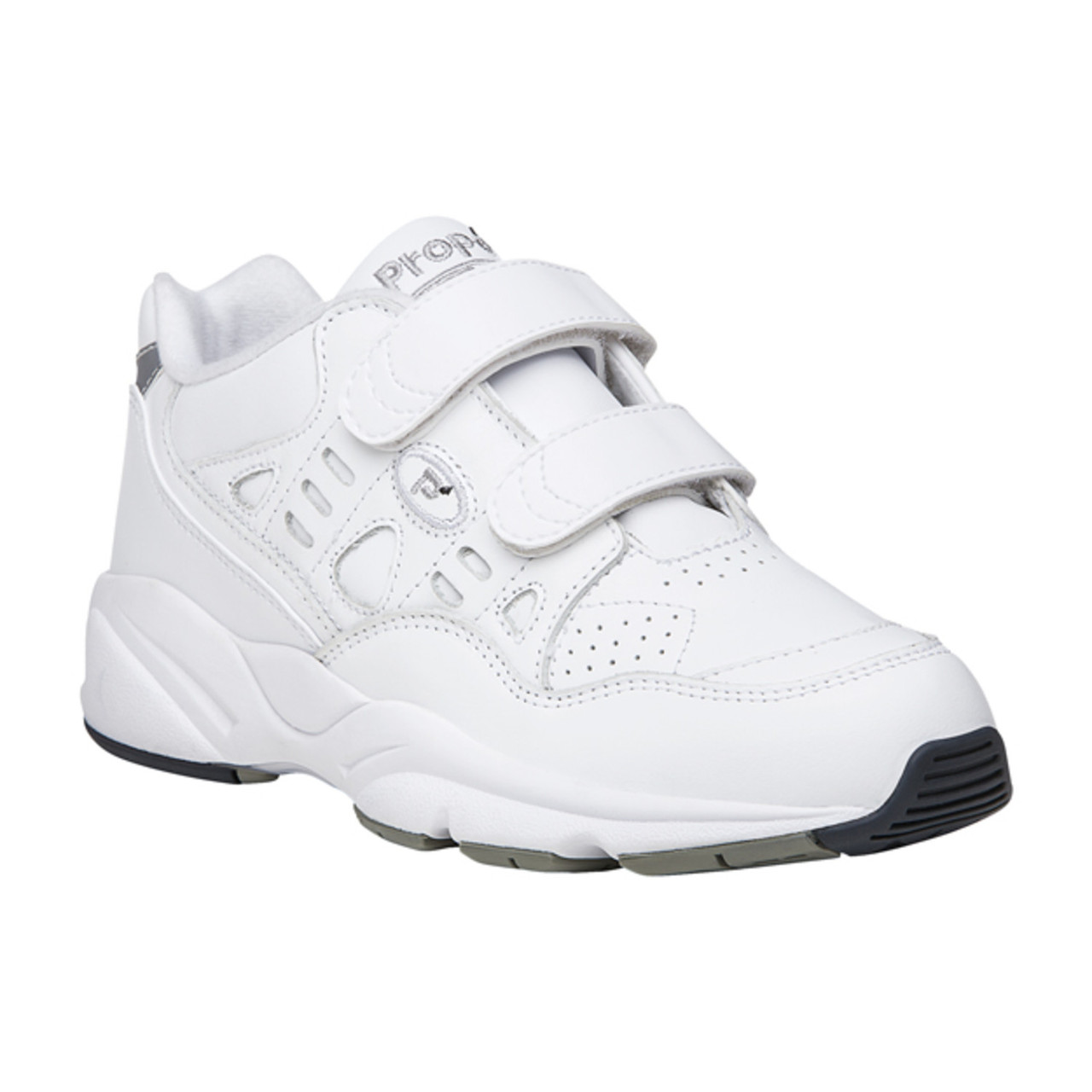
Sizes: 5-13 (half sizes available)
Width options: Narrow, Medium, Wide, X-Wide
Shoes that are too narrow can cut off the feeling of being balanced, so Thomas recommends shoes with wider bases. “This walking shoe is designed for stability with a wide base and a roomy toe box,” says Thomas. Even more, these Propét (pronounced “pro-pay”) shoes don’t leave any room to trip thanks to the velcro straps, which fasten you in for a more stable and secure fit. Velcro straps can also be helpful for elderly people or anyone who has trouble tying laces.
Colors: Black or white
Pros:
- Sturdy, lace-free design
- Several width options
Cons:
- Limited color options
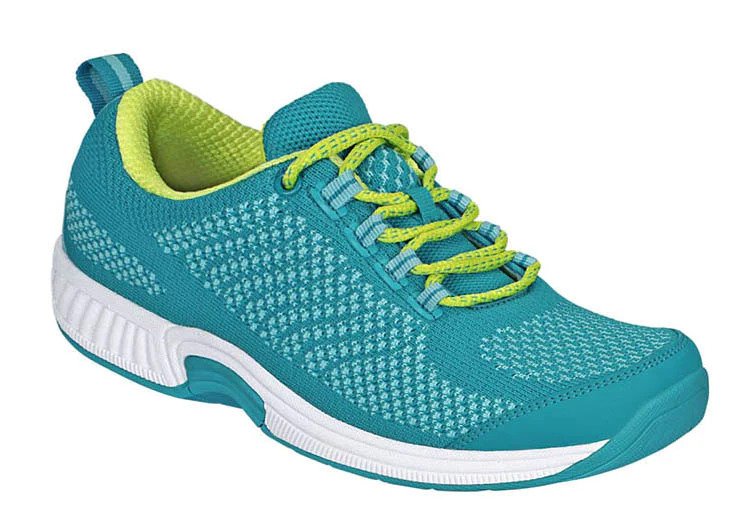
Sizes: 5-12 (half sizes available)
Width options: Standard, Wide, X-Wide
This shoe has both elements Coombs recommends: a wider toe-box and a strong outsole. Orthofeet’s Coral Stretch Knit are technically orthopedic shoes, which means they have a wide toe-box so your toesies can spread out and “grip” the ground, while the rubber outsoles offer traction and stability. Plus, the combination of breathable knit material and generous arch support comes in clutch for long days on your feet. You can also remove the included orthotic insoles to add your own if need be. They also come with an arch-support booster for those who need more arch support.
Colors: 9
Pros:
- Comes with orthotic insoles and an optional arch-support booster
- Breathable knit material
- Highly rated
Cons:
- Some customers say they’re not as durable as expected
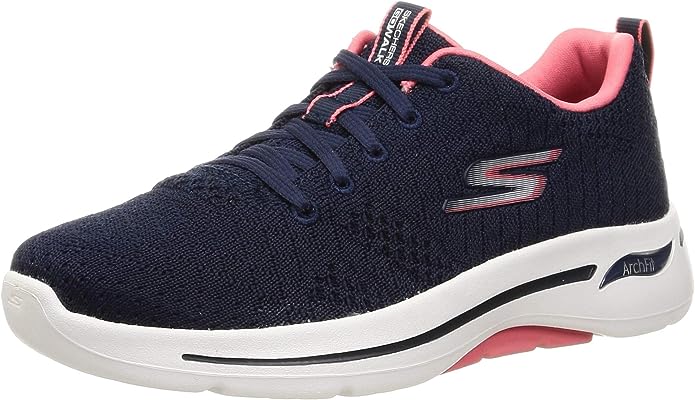
Sizes available: 5-13 (half sizes available)
Width options: Regular, Wide
While known for its light-up-with-every-step kid shoes, Skechers also produces foot-friendly footwear for adults, and the Go Walk shoes are a favorite among personal trainers. “These supportive shoes include Skechers Arch Fit insoles for increased support and comfort,” says Thomas. Lightweight, breathable, and flat, the Go Walk Unify Sneakers will have you ready to conquer the miles ahead.
Colors: 6
Pros:
- Highly rated
- Added arch support insoles
Cons:
- Some customers say they could be wider
Things to consider before buying
Sizes and widths
If you’re someone who typically buys wide or extra-wide shoes, that should be the first criteria you check for when scoping out a new brand or model. Even though some brands may claim to run on the wide side, if they don't offer clearly defined wide sizes, you might wind up with a too-snug fit.
Consider the arch support
Not to get all “Cinderella” here, but everyone’s feet are unique. If you’re someone with flatter feet or super high arches, you’ll want to ensure that the pair of shoes you’re going for caters to your arch support needs. After all, arch support is the key to better posture, and the amount of lift you need will depend on the natural curve of your foot.
Returns
If the shoe doesn’t fit (or make you feel more stable), you’ll want to be familiar with the brand’s return policy so you can send them back or exchange them for a different pair.
Frequently asked questions
How can I improve my foot balance?
As we’ve learned through countless expert interviews, the key to improving balance in any area of your body is to strengthen the surrounding muscles with balance exercises. For foot balance, foot and ankle exercises (such as toe curls and heel raises) are a great place to start.
What are the most accessible balance shoes?
When looking for the best shoes for balance, those who struggle with mobility in particular should prioritize supportive insoles and grippy outsoles. While slip-on shoes can be tempting (no laces to deal with!) they can also be hazardous. Opting for a velcro pair, such as the Propét pick above, is an easy way to help combine ease and security.
Loading More Posts...